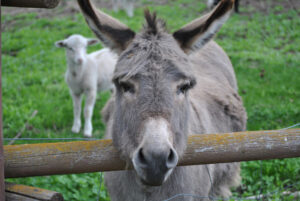3 Kind of Freaky (But Totally Healthy) Alternatives to Cow Milk

How about these alternatives to cow milk?
So much has been discussed when it comes to cow’s milk. By now, all of us should be acutely aware of the dangers in mass-produced, pasteurized and homogenized milk sourced from poorly treated cows pumped with steroids and antibiotics. Moreover, cow milk in and of itself poses some challenges to the human body, as it is difficult for most people to digest due to its casein protein content.
Luckily, so many alternatives to cow’s milk have popped up, with sheep and goat milks leading the way. Vegan nut, soy and coconut milks are also becoming increasingly popular. However, the conversation doesn’t stop there. In fact, there are many other sources of milk that are proving to not only outdo cow milk but also the highly-lauded sheep and goat milks in terms of health benefits.
Around the world, people are enjoying milk from creatures besides cows, sheep and goats and for good reason. Goat and sheep milks have recently been enjoying their heyday since word got out that they are easier to digest and better for the human body. But did you know that there are even better-for-you milks and milks that can actually act as a potent superfood, taking your health and vitality to the next level? While cow milk may be the modern staple, it doesn’t come close to offering the benefits inherent in other milks. Don’t let the freak show that is cow milk represent all animal-based milks. Here are 3 unique alternatives that will reshape your perception of the milk market and the potential therein.
1. Donkey Milk
In 2012, the world’s number one tennis player Novak Djokovic made headlines for buying the world’s entire supply of donkey cheese. That’s right, donkey cheese. The rare cheese is made in Serbia and runs for more than $500 per pound. Why would Djokovic want so much of this donkey milk product? Turns out, donkey milk is a elixir of youth and vitality. It was praised by Greek physician Hippocrates, who used it to treat liver problems, fevers, infectious diseases, poisoning, joint pains and nosebleeds. Cleopatra used to bathe in the stuff to moisturize her skin. In 19th century London, donkey milk was consumed as an alternative to cow milk. Meanwhile, Pope Francis said he thrived on it as a baby!
Donkey milk is rich in lactose , low in fat and the closest animal milk to the human variety. It is rich in vitamins, anti-bacterial proteins and anti-allergens. Donkey milk has proven to be effective in the treatment of human immune-related diseases. It also bears anti-inflammatory benefits.
2. Deer Milk
Scientists are hoping deer milk will boast the same benefits found in donkey milk. A cheese maker in Oamaru, New Zealand is believed to have produced the world’s first cheese from red deer milk. Scientists have analyzed the milk and have found unique bioactive compounds that may improve human’s immune systems. Further benefits of deer milk have yet to be confirmed, but the hopes are high and the indications are promising. If viable, deer milk may be worth up to $100 per liter, with each single red deer hind producing up to $20,000 worth per single lactation.
3. Camel Milk
According to studies, camel milk may be the next best superfood. The milk contains three-times more vitamin C than cow’s milk and prevents colon cancer, reduces hyper-tension, is anti-inflammatory, balances insulin in the body and contains natural antiobiotics. Lactoferrin, the main iron-binding protein found in camel milk, exhibited the ability to reduce cancer growth by 56 percent when applied to cancer cells. Camel milk is on average 2.5 percent fat, where as cow’s milk is on average 3.5 percent fat. Meanwhile, it also contains a higher amount of vitamins and minerals, such as potassium, phosphorus, zinc, iron and manganese. Camel milk is already commonly used in the Middle East, Africa Russia and India.
Related on Organic Authority
Easy, Delicious Vegan Flan Recipe with Coconut Milk
Photo Credit: Bagsgroove

